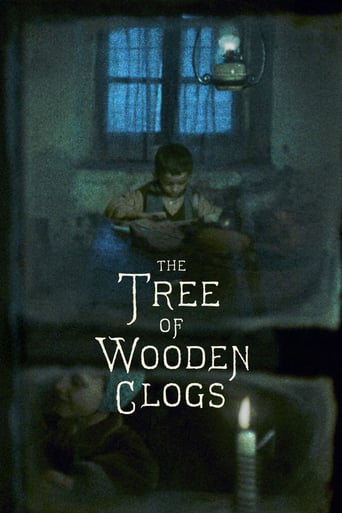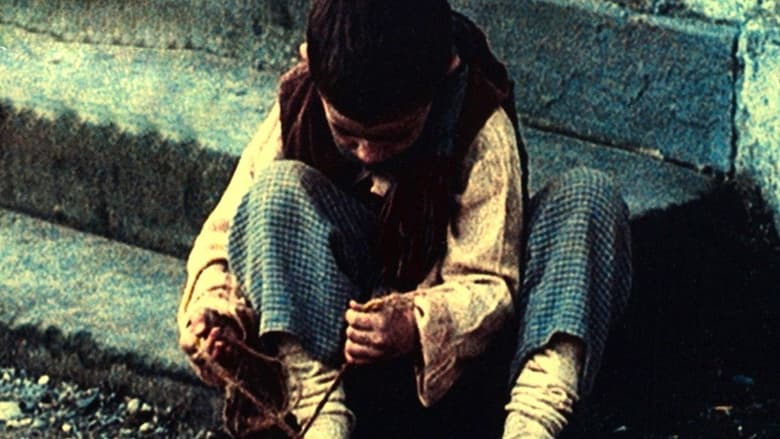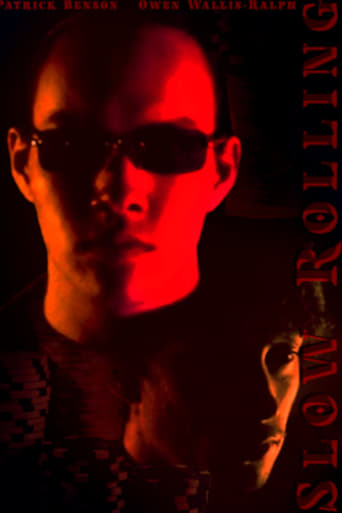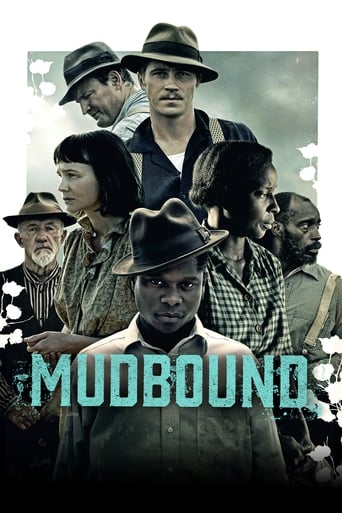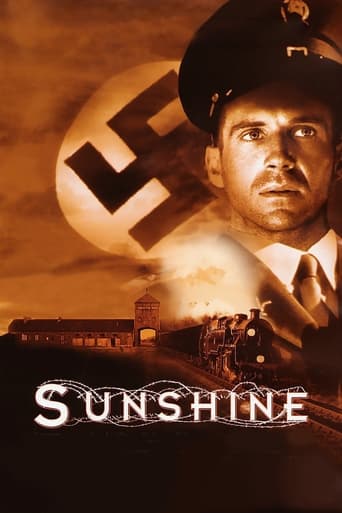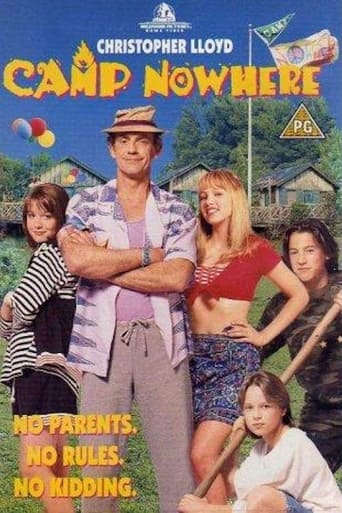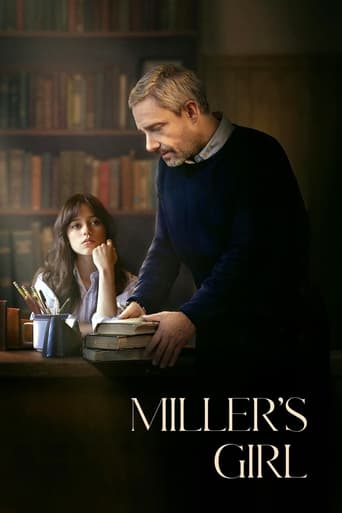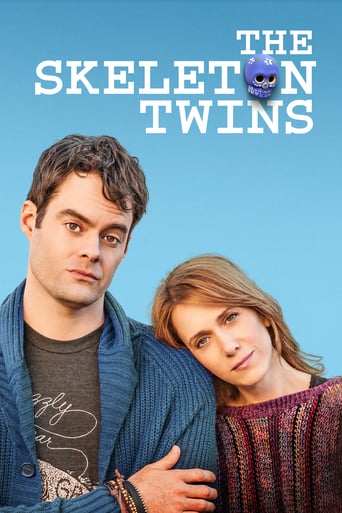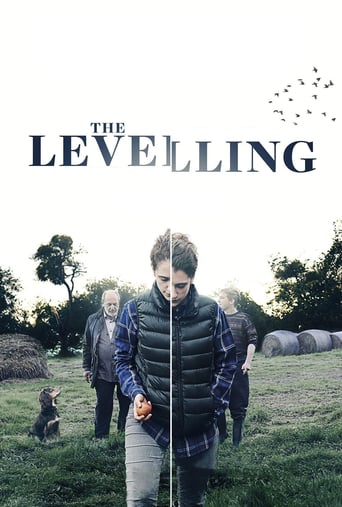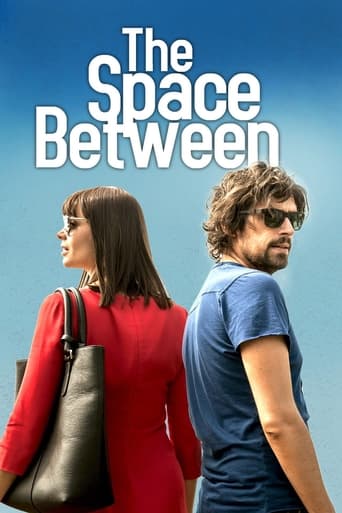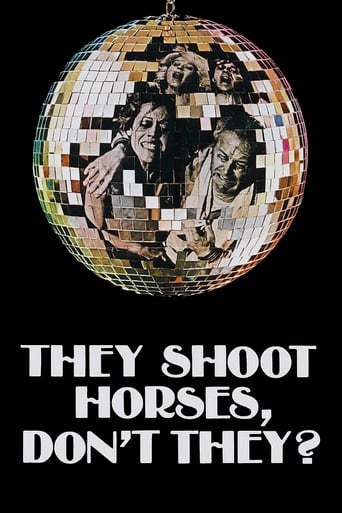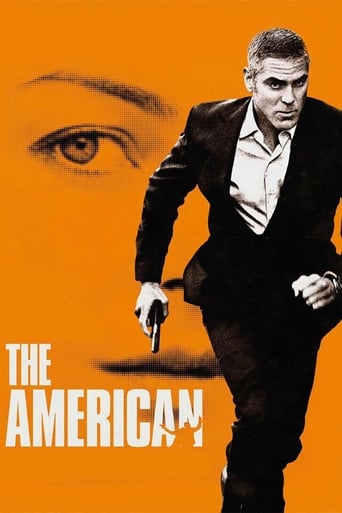The Tree of Wooden Clogs (1979)
Peasant life in a feudal farm in rural Italy at the end of the 19th century.
Watch Trailer
Cast


Similar titles
Reviews
Some things I liked some I did not.
it is the rare 'crazy' movie that actually has something to say.
Mostly, the movie is committed to the value of a good time.
There are moments that feel comical, some horrific, and some downright inspiring but the tonal shifts hardly matter as the end results come to a film that's perfect for this time.
In true neo-realistic vein THE TREE OF WOODEN CLOGS follows the lives of a quartet of peasant families striving for daily existence in turn of the century Italy. There's no conventional plot here but a series of ritualistic vignettes that flawlessly capture their strenuous survival over a course of a year. A grandfather demonstrates and passes the secrets behind his early tomatoes, a bright five year old trudges miles to attend school wearing a pair of clogs, a devout widow with six children prays for their ailing livestock, a young couple's restrained courtship and subsequent marriage, a pregnant mother foregoes the services of a midwife to save for warm clothing. All these threads are expertly interwoven and are blended with a sense of humanity and poetic optimism.Couple of movies that instantly spring to mind which succeeded in capturing the monotony emanating from its character(s) this arrestingly are - JEANNE DIELMAN (which was a brilliant character study within the contemporary setting) & THE NAKED ISLAND (another ruminative dissection of a farming family boasting stunning imagery). TTOWC on the other hand is more epic in scale and works like a gritty documentary featuring non-actors. There are couple of gruesome sequences of a hog being disemboweled and of a goose-beheading which purely serve to highlight the harsh realities of peasant life. TTOWC is also relatively more interactive while the above two were virtually dialogue-less.I'd only seen Olmi's IL POSTO before this - which was an indelibly honest coming of age film. And considering the fact that he wrote, directed, shot and edited this meditative epic - speaks volumes of cinematic acuity. He had that unique ability of making the mundane almost miraculous.
I'm Italian and I grown up with the charming stories of my grandparents, about the works in the countryside, the long walks for go to school and to the church, the frugal diet, the attempts of cheat to the bailiff (il fattore) and to the owner (il possidente), the killing of the pigs (la pista, that I saw more times in my childhood), the meeting between young men and women... this movie is a perfect reconstruction of their stories. I have some books too, written by old men and women of my region lived at the beginning of the century, and all the scenes in this masterpiece are written in these books. Some scenes could seems cruel to the eyes of a citizen, and the seven minutes where you can see the killing of the pig would be impossible to make in this century (the animalists would became crazy), but this is history, and make more sweet the history doesn't have sense. This is the history of Italy, history that you can find yet in some part of the peninsula, and watching "L'albero degli zoccoli" can help you in understanding better my country. It isn't an action movie, and if you are looking for sci-fi or action be aware that even a masterpiece like this one could be boring to wrong eyes.
Facts, gestures, desires. Marriage, money question, sketch of future, faith. Few drops of Bach and the light as best actor. And respiration of thing aura. A movie about secret rooms of soul. About expectation skin and steps of a boy. About happy like bread. The flour, the yeast, the water,oil, salt, sugar. The dough and crumb of leaven. Each as heart of movie. As sign of a hided benediction. A world. Poor and simple. Without recipes or complicated rules. Slice of a childhood. And story of art to make beauty as veil of feelings. Pieces of a fight against dust of every day. Trip in the essence of images and sadness. Sketches of basic solutions. And day. As arena.
I knew it was an Italian film, and that it featured in the book 1001 Movies You Must See Before You Die, so that was the best reason for me to try it. There is no plot as such, it is basically a documentary style film seeing life on a peasant farm in Lombardy, Italy, at the beginning of the 19th century. So in the film we see all farm work and activities going through all the seasons, including hay loading, gutting and cutting up a pig while partially alive, a little mucking out, and caring for horses and cattle, oh, and going to church. The only tiny hints at a story are a clever child sent to school instead of getting help, and having to walk miles to get there, and when his shoes are ruined, they can't afford a new pair. Also, one of the farmer's finds a very valuable coin while doing his task with the horses, and to make sure no-one finds it, he hides it under one of the horse's hooves, but this doesn't work. Starring Luigi Ornaghi as Batistì, Francesca Moriggi as Batistina, Omar Brignoli as Minec and Antonio Ferrari as Tuni. I think, if it wasn't for the lack of plot (which isn't all bad, but still), and the length at just over three hours, this would have probably been given five stars, but it is still an essential period drama. It won the BAFTA Flaherty Documentary Award, and it won the Cannes Film Feastival Golden Palm (Palme D'or) and the Prize of the Ecumenical Jury. Very good!

